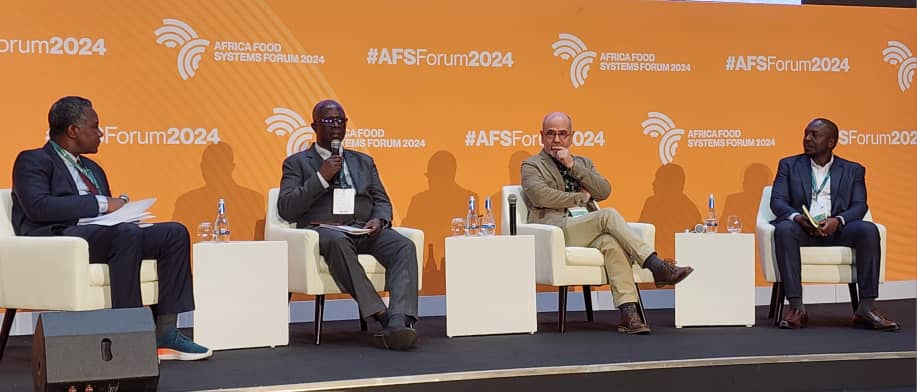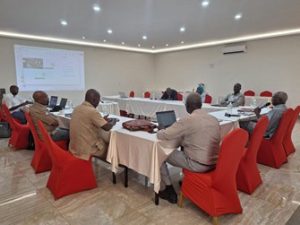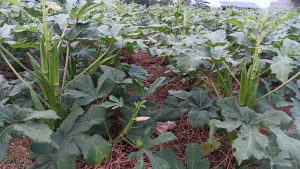From e-catalogs to country engagement: How TAAT is deploying digital tools for Data-driven Agrifood Transformation

The imperatives of fostering stakeholders’ commitment to scaling up technology adoption for food systems transformation through digital tools were highlighted at the 2024 African Food Systems Forum in Kigali, Rwanda.
At a side event on Partnerships for Data-driven Agrifood Transformation, organised by Technologies for African Agricultural Transformation (TAAT), Center for Agriculture and Biosciences International (CABI) and ProjectPro Partners International, several path-breaking digital tools were showcased and analysed for large-scale adoption.
These innovative digital solutions that improve access to information, its uptake and positively impact African food systems include Mobile Apps for Smallholder Farmers like the CropStar, which provides real-time insights and tools to help farmers optimize crop yields, reduce waste, and adopt sustainable farming practices, Early warning systems for agrifood systems/Data-informed decision making from farm to policy like PRISE (Pest Risk Information Service), and TAAT Technology e-catalogs, the one-stop shop for decision-makers to find, select and adopt validated technologies to transform African agriculture.
With a focus on exploring how digital agricultural innovations can transform African agriculture, Dr Bruno Tran, TAAT Scaling Expert, and Mr Henry Mibei, digital innovator and data governance specialist at CABI, presented a selection of cutting-edge digital solutions that facilitate better decision-making from farm to policy level and bridge the gap between cutting-edge technologies and large-scale investments in African agriculture.
“The TAAT e-catalogs are designed with accessibility in mind. The platform offers a user-friendly interface and clear information structures, catering to various user needs. We have two e-catalogs, for Governments and for the Private Sector, and they come with powerful Search and Filter tools to help you select the right technology for your needs,” Dr Tran said.
“The TAAT ecatalogs allow you to curate your own selection of technologies or Toolkit, designed to solve the issue you want to tackle. You will be able to save or print Pitches, which are short, 1-page summary of the most relevant information about a technology,” he added.
After the short and impactful presentations, a panel discussion and a Q&A session ensued, providing deeper understanding of the successful approaches, their common requirements for scaling and how the e-catalogs can connect technology providers with investors and policymakers in different African countries.
The panel session provided details with examples of how digital solutions (e-catalogs, mobile apps and early warning systems) are being used to promote the adoption of innovations at scale within government projects and the private sector, the barriers to the adoption of digital technologies in agriculture and actionable solutions, and mobilising support from partners for deploying the showcased innovations and facilitating technology adoption across Africa.
The event succeeded in raising awareness, sharing knowledge, and fostering collaboration to scale up innovation and technology adoption for a more productive and resilient food system in Africa. It also increased stakeholders’ awareness of the e-catalogs and enhanced their understanding of the country engagement strategies for promoting technologies and innovations.
With heightened interest in digital solutions for African agriculture transformation, participants at the event expressed their optimism that the cutting-edge digital solutions presented will facilitate food systems transformation when scaled up across the continent.
Recent Stories
Related Stories
- AFSTA 2025: TAAT advocates Innovative Seed System Models to unlock Opportunities for SMEs
- TAAT facilitates Capacity Building for Fish Farmers in Rwanda
- Jigawa State Delegation explores scale-up Opportunities with TAAT
- TAAT and Partners convene stakeholders for the Guinea seed roadmap
- GHANA: TAAT Engages Stakeholders on Innovation Platform Model





